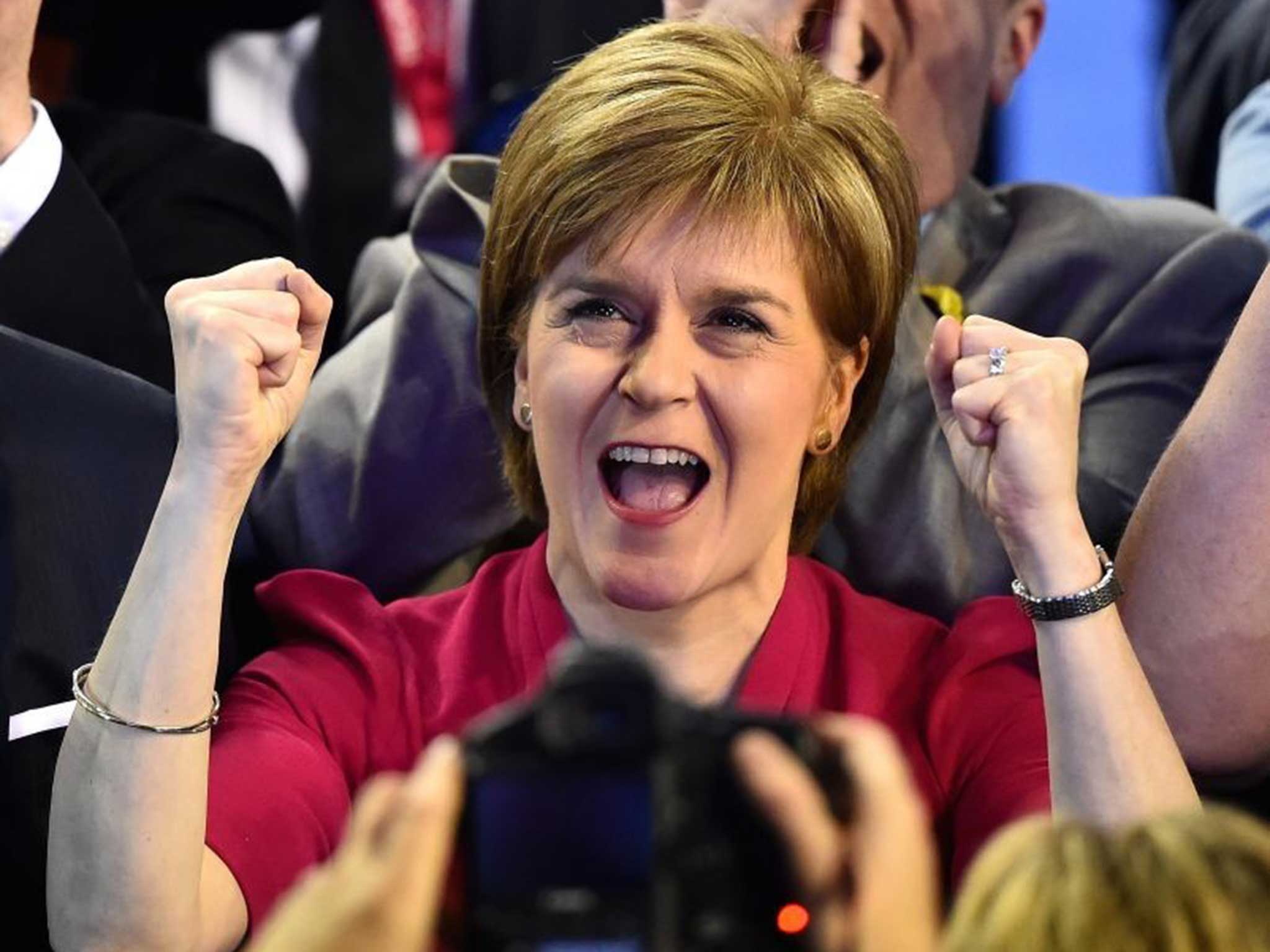The Union is at great risk... but it shouldn’t be preserved at all costs
If the Scots seek independence, their desire should not be resisted down south


Your support helps us to tell the story
From reproductive rights to climate change to Big Tech, The Independent is on the ground when the story is developing. Whether it's investigating the financials of Elon Musk's pro-Trump PAC or producing our latest documentary, 'The A Word', which shines a light on the American women fighting for reproductive rights, we know how important it is to parse out the facts from the messaging.
At such a critical moment in US history, we need reporters on the ground. Your donation allows us to keep sending journalists to speak to both sides of the story.
The Independent is trusted by Americans across the entire political spectrum. And unlike many other quality news outlets, we choose not to lock Americans out of our reporting and analysis with paywalls. We believe quality journalism should be available to everyone, paid for by those who can afford it.
Your support makes all the difference.Shortly before election day I spent an afternoon with the affable Danny Alexander as he fought to save his seat in north-east Scotland. This decent man was an unexpected star of the Coalition but for all his brave talk must have known his campaign was doomed, victim of both the Liberal Democrat collapse and the Scottish National Party surge. He was calm, taking pride in his political achievements, yet passionate as we discussed his main rival.
When I asked why he was so opposed to independence, his reply was instructive. He argued that nationalists stood at the polar opposite end of politics to liberals, since they sought to divide people and stoke up fears of difference while his own creed was founded on acceptance and tolerance. While Alexander’s loss of his seat may now be little more than a footnote to last week’s amazing election, he was right to highlight this key point.
What, after all, is the difference between people on one side of the border and those on the other? History shows with stark clarity how nationalism can mutate into a highly malign force. Even in more moderate guises, it provides the same motivation behind both the SNP rise and the anti-immigration bile of xenophobic parties such as Ukip. This is why it tips over so easily into fanaticism and hatred; just witness those abusive tweets towards JK Rowling and other prominent unionists. I know of one forced to leave his home country.
No one can argue with the SNP’s astonishing success, winning 56 of the nation’s 59 seats – up from just six at the previous general election. This delivered their dream result: becoming third-biggest party in Parliament under a Tory government with a slim majority, while their main rival was left shattered by unanticipated defeat. It should be added Labour deserved to be routed in Scotland, such was the party’s complacency over the years in what it smugly saw as an impregnable heartland.
The challenge is how to respond to the SNP, with the Union at great risk again. At the very least, surely it is time to start challenging its leader, Nicola Sturgeon, rather than allow her to strike her phoney pose as anti-austerity warrior and victim of English cruelty? She may be charismatic, eloquent and a fine campaigner, but she should be examined as closely as any other politician – and when she is, her confident stance looks rather less convincing.
Yesterday, for instance, she insisted again that her starting point was for Scotland to stop being ignored. Yet this is palpable nonsense. The country provided the previous two prime ministers, along with many key Labour ministers and several leading lights in the Coalition. It has been given extensive devolution, then a second referendum on independence, as well as retaining, long past its sell-by date, a highly favourable spending settlement through the Barnett formula. Yes, the demands of Scots must be met and there should be further devolution of powers in Britain’s strange, stuttering drift towards federalism. This should include full fiscal autonomy, which Sturgeon says she wants and would ensure Scots appreciate the costs of their better-resourced public services. But the flip side of this deal is to review the Barnett formula, intended as a short-term fix four decades ago for a sparsely populated nation and since disavowed even by its own inventor.
Without this there will be lingering resentment from English taxpayers helping pay for free Scottish prescriptions, tuition fees and social care. Why should Scots get 15 per cent more spent on them per person when despite pockets of grinding poverty much of their nation is prosperous – and when the South-West, for example, gets almost £2,000 less per head of population despite having among the country’s lowest wages, in Cornwall? Or look at East Midlanders living in Nottingham, the UK’s poorest city, who receive £2,056 less per person in public spending than residents in the high-earning Edinburgh.
Such generosity enables Sturgeon’s posturing as doughty defender of the public sector while her party presides over budget reductions for schools and hospitals. There are many more doctors and nurses in Scotland so the SNP could quietly reduce spending on the NHS over the course of the Coalition, while perversely it was protected south of the border by a government preaching austerity. This continued a historic trend. “Governments in Holyrood have placed less priority on funding the NHS in Scotland ... than governments in Westminster have for England,” says the Institute for Fiscal Studies.
For all Sturgeon’s passion over NHS privatisation, her party saw state spending on private healthcare hit record levels under its watch. But since the SNP’s aim is independence, its actions are geared towards nation building. So its leaders claim Scotland to be more left-wing and liberal than the rest of the country, yet surveys show Scots largely share the same beliefs as other Britons. And when they talk of devolution, their vision is severely restricted – for, like most nationalist groups, the SNP is a centralising force that wants to retain power in its own hands in Holyrood rather than loosen control to communities. This can be seen from council tax to the police, often with a consequent loss of accountability.
If the Scots seek independence, their desire should not be resisted down south. Despite my distaste for the artificial divisions of nationalism, I am not desperately wedded to the Union at all costs. There is need for devolution of powers and political reform in our country – although I would be saddened by partition as someone whose family, higher education and wife are all Scottish. But we must recognise that cant comes from politicians north of the border as well as Westminster. And for the sake of Britain, false prophets need to be confronted if we are to build a more progressive society for everyone.
Join our commenting forum
Join thought-provoking conversations, follow other Independent readers and see their replies
Comments